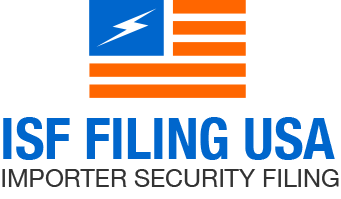In the complex world of international shipping, understanding the terminology and processes involved is crucial for smooth operations. One such term is the ‘Bonded Warehouse’, a concept that plays a significant role in the Importer Security Filing (ISF) process. This article aims to provide a comprehensive understanding of what a Bonded Warehouse is, its role in ISF filing, and related terms and definitions.
A Bonded Warehouse, also known as a Customs Warehouse, is a secured area where imported goods are stored until customs duties are paid. These warehouses are under the supervision of customs authorities and are often used when the importer is not ready to pay the customs duties immediately upon arrival of the goods. Understanding the concept of a Bonded Warehouse is essential for importers, as it directly impacts the ISF filing process and the overall cost of importing goods.
Understanding Bonded Warehouses
A Bonded Warehouse is a facility approved by the Customs and Border Protection (CBP) for the storage of imported goods until the payment of customs duties. These warehouses are often used by importers to delay the payment of duties, providing them with financial flexibility. The goods stored in a Bonded Warehouse are considered to be in a suspended state of importation, meaning they are not officially entered into the commerce of the United States until duties are paid.
There are different types of Bonded Warehouses, each with its own rules and regulations. These include Public Bonded Warehouses, used by multiple importers, and Private Bonded Warehouses, used exclusively by one importer. Understanding the differences between these types of warehouses can help importers choose the best option for their business needs.
Public Bonded Warehouses
Public Bonded Warehouses are open to all importers. They are typically operated by third-party logistics providers and offer storage, handling, and customs clearance services. Importers can store their goods in these warehouses for a specified period, usually up to five years, and pay customs duties only when the goods are removed from the warehouse for consumption.
Using a Public Bonded Warehouse can provide importers with several benefits. These include the ability to consolidate shipments, improve cash flow by delaying duty payment, and reduce storage costs by using shared warehouse space. However, importers should also consider the fees charged by the warehouse operator and the potential risks of storing goods in a shared facility.
Private Bonded Warehouses
Private Bonded Warehouses are owned and operated by the importer for their exclusive use. These warehouses are typically used by large importers who have a high volume of goods and want to maintain control over their inventory. Like Public Bonded Warehouses, goods can be stored in a Private Bonded Warehouse for up to five years, and duties are paid only when the goods are removed for consumption.
While using a Private Bonded Warehouse can provide importers with greater control over their inventory, it also comes with additional responsibilities. These include the need to comply with strict customs regulations, maintain accurate inventory records, and provide security for the stored goods. Therefore, importers should carefully consider the costs and benefits of operating a Private Bonded Warehouse before making a decision.
Role of Bonded Warehouses in ISF Filing
The use of Bonded Warehouses directly impacts the ISF filing process. The ISF, also known as “10+2”, is a requirement by the CBP for all ocean cargo imported into the United States. It involves the submission of certain information, including the name and address of the Bonded Warehouse, to the CBP at least 24 hours before the cargo is loaded onto the ship at the port of origin.
When goods are stored in a Bonded Warehouse, the ISF filing process becomes more complex. This is because the goods are not officially entered into the U.S. commerce until they are removed from the warehouse and the duties are paid. Therefore, the importer must provide accurate information about the Bonded Warehouse and ensure that the ISF is filed correctly to avoid penalties.
